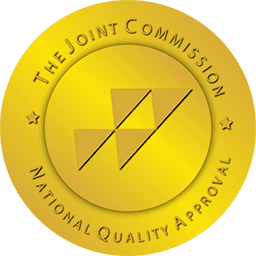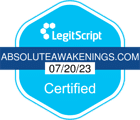Benzodiazepines are a class of medication for managing anxiety, such as those found in panic disorder, generalized anxiety disorder, and social anxiety disorder. They’re also used to relieve insomnia and treat seizures.
Over 75 million prescriptions for benzodiazepines are written every year, making them one of the most prescribed types of medication in the US. About 15 percent of the US adult population has taken benzos at least once within the past year. Nearly 2 percent have taken them for longer than a year.
Benzodiazepines, also called benzos, are considered safe and effective for 2 to 4 weeks of use. They have a high risk of dependence, abuse, and addiction when used incorrectly or longer than recommended.
Sometimes called “nerve pills,” benzodiazepines increase the availability and effectiveness of a chemical called gamma-aminobutyric acid (GABA). GABA is found in the brain and is responsible for soothing and calming the nervous system. The more active GABA becomes, the calmer a person feels. However, benzodiazepines can also prompt a feeling of intense euphoria.
Short and Long-Acting Benzodiazepines
Benzodiazepines are categorized by how fast they work and how long they stay in a person’s body. Short-acting benzodiazepines work for 4 to 6 hours and get out of the body within 24 to 26 hours. They reach a peak of effectiveness rapidly and are effective for intense, overwhelming bouts of anxiety. Long-acting benzodiazepines take days to leave the body and provide a longer-lasting but lower-intensity relief from anxiety.
Typically, short-acting benzodiazepines have greater risk factors for severe withdrawal symptoms than longer-acting benzos.
These are the 5 most prescribed benzodiazepines in the US:
- Xanax, Xanax XR (alprazolam). Alprazolam, a short-acting benzodiazepine, is used to manage anxiety disorders, panic disorders, and panic attacks. Alprazolam has the most severe withdrawal symptoms of the benzo family.
- Klonopin (clonazepam): Clonazepam is a short-acting drug used to treat various conditions, including anxiety and panic attacks.
- Ativan (lorazepam): Lorazepam is a short-acting medication given for anxiety disorders and anxiety with depression.
- Valium (diazepam): Diazepam was once given for anxiety, but because it’s a long-acting benzodiazepine, it does not provide immediate relief from acute anxiety. It’s now used to treat some kinds of seizures and to reduce the symptoms of alcohol and amphetamine withdrawal.
- Restoril (temazepam). Temazepam is a short-acting benzodiazepine used to treat insomnia.
What Are Side Effects of Benzodiazepines Use?
Benzodiazepines have some side effects, even when they are taken appropriately. The short-term side effects of benzodiazepine use include:
- Short-term memory loss
- Confusion
- Drowsiness
- Light-headedness and dizziness
- Slurred speech
- Muscle weakness
- Slow breathing
- Diminished motor control
- Blurry vision
- Nausea
- Dry mouth
The long-term side effects of benzodiazepine use include dependence, addiction, and long-lasting cognitive impairments, such as impaired memory, problems concentrating, confusion, and decreased attention span.
Are Benzodiazepines Addictive?
Benzodiazepines are among the most psychologically and physically addictive of all commonly prescribed medications. A person can become psychologically and physically addicted to benzos even if they never take them inappropriately.
Causes And Risk Factors for Benzodiazepine Addiction
Taking benzos for longer or greater quantities than prescribed is a common cause of benzodiazepine addiction. Typical risk factors for benzodiazepine addiction include:
- Taking benzodiazepines for longer than 4 weeks.
- The presence of other addictive disorders, like alcohol use disorder or opioid abuse disorder.
- Co-occurring mental health disorders, such as anxiety disorders, depression, or bipolar disorder
How Does Someone Know If They Are Addicted?
One of the most important signs of addiction is a person’s continued substance use, even when doing so has negative consequences. When a person abuses benzodiazepines, these negative consequences can include poor health, a diminished ability to think clearly, damaged relationships, poor performance at work or school, and so forth.
Signs of a benzodiazepine addiction may include:
- Inability to use benzodiazepines as prescribed
- Inability to reduce one’s intake of benzos
- Increased tolerance of benzos, i.e., needing a higher dosage to get the same effect that a lower dosage once delivered
- Loss of control over benzodiazepine use
- Denying addiction, even after experiencing negative consequences of their benzo use
- Withdrawal symptoms when attempting to reduce one’s intake of benzodiazepines
Can Someone Detox At Home From Benzodiazepines?
Detoxing from benzodiazepines at home without in-home medical support is a bad idea that can be dangerous and painful. Also, no one should ever try to go “cold turkey” on benzodiazepines.
If someone has taken any benzodiazepines for longer than 3 or 4 weeks, an abrupt halt to taking that benzo is likely to cause intense, painful psychological and physical withdrawal symptoms. If a person has been taking benzodiazepines on more days than not for more than a month, stopping abruptly will lead to withdrawal symptoms that can be lethal, such as grand mal seizures.
The psychological risks of quitting benzodiazepines can also be high, as people often have suicidal impulses and repetitive thoughts of suicide when trying to go cold turkey. They may also experience a complete break from reality, called psychosis.
Why Is Medical Detox Important?
Benzodiazepines act as central nervous system depressants. When someone dependent on benzos stops taking them, their nervous system will shift back into overdrive. This causes severe rebound anxiety, panic attacks, insomnia, muscle spasms, suicidal thinking, attempts at suicide, and in rare cases, potentially fatal seizures.
Detox & Treatment Options
Professional detox can help people rid their bodies of benzos safely and comfortably.
At Absolute Awakenings, we combine proven therapeutic addiction recovery methods with certain time-worn holistic approaches to healing. We believe that providing an individual with a comprehensive approach to clinical care will help pave the road to long-term sobriety.
If you or someone close to you has been abusing benzodiazepines or has been combining benzodiazepines with other drugs (like opioid narcotics), seeking professional help is important.
Give us a call today to discuss treatment options. We can get you started on the well-deserved path to long-term recovery.
References
- Olfson M, King M, Schoenbaum M. Benzodiazepine use in the United States. JAMA Psychiatry. 2015;72(2):136-142. doi:10.1001/jamapsychiatry.2014.1763
- Longo LP, Johnson B. Addiction: Part I. Benzodiazepines—Side Effects, Abuse Risk and Alternatives. afp. 2000;61(7):2121-2128.
- Ashton H. The diagnosis and management of benzodiazepine dependence. Current Opinion in Psychiatry. 2005;18(3):249. doi:10.1097/01.yco.0000165594.60434.84
- Juergens S. Alprazolam and diazepam: addiction potential. J Subst Abuse Treat. 1991;8(1-2):43-51. doi:10.1016/0740-5472(91)90026-7
- Gillespie C. Why Does Long-Term Benzodiazepine Use Cause Cognitive Impairment? Verywell Mind. Published March 22, 2022. Accessed January 4, 2023. https://www.verywellmind.com/long-term-benzodiazepine-use-causes-cognitive-impairment-study-finds-5222490
- Benzodiazepine Addiction | Semel Institute for Neuroscience and Human Behavior. Accessed January 4, 2023. https://www.semel.ucla.edu/dual-diagnosis-program/Conditions_Treated/Benzodiazepine_Addictions
- O’brien CP. Benzodiazepine use, abuse, and dependence. J Clin Psychiatry. 2005;66 Suppl 2:28-33.
- Brett J, Murnion B. Management of benzodiazepine misuse and dependence. Aust Prescr. 2015;38(5):152-155. doi:10.18773/austprescr.2015.055













